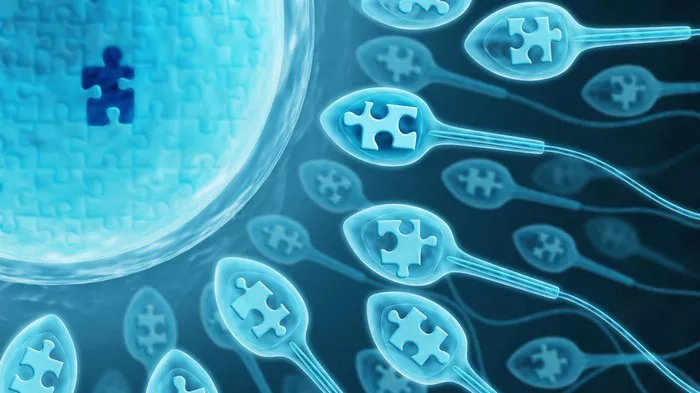Seminal fluid, often referred to as semen, plays a crucial role in fertility. It contains spermatozoa and various other components that support and nourish sperm, aiding in their journey to fertilize an egg. The consistency and volume of seminal fluid can vary from person to person, and sometimes, individuals may seek ways to thicken their semen for personal or fertility-related reasons. In this guide, we will delve into the factors influencing seminal fluid thickness and explore methods to naturally thicken seminal fluid.
Understanding Seminal Fluid
Seminal fluid is primarily composed of fluids from the seminal vesicles, prostate gland, and bulbourethral glands. Its consistency can range from thin and watery to thick and viscous. The thickness of seminal fluid is influenced by various factors, including:
1. Hydration Levels: Adequate hydration is essential for maintaining optimal semen volume and consistency. Dehydration can lead to thicker, more concentrated semen, while staying well-hydrated can result in thinner, more fluid semen.
2. Diet and Nutrition: Nutritional deficiencies or imbalances can affect semen quality. Consuming a balanced diet rich in vitamins, minerals, and antioxidants is crucial for healthy semen production. Zinc, in particular, is known to play a vital role in sperm production and semen quality.
3. Lifestyle Factors: Certain lifestyle habits, such as smoking, excessive alcohol consumption, and drug use, can negatively impact semen quality and consistency. Adopting a healthy lifestyle can contribute to thicker seminal fluid.
4. Frequency of Ejaculation: The frequency of ejaculation can also influence semen thickness. Semen produced after longer periods of abstinence tends to be thicker, while frequent ejaculation may result in thinner semen.
Methods to Thicken Seminal Fluid
While seminal fluid thickness is largely determined by individual factors, there are several natural methods that may help improve semen consistency:
1. Stay Hydrated: Drinking an adequate amount of water throughout the day is essential for maintaining optimal semen volume and consistency. Aim to drink at least eight glasses of water daily to stay hydrated.
2. Healthy Diet: Incorporate foods rich in essential nutrients, such as fruits, vegetables, whole grains, lean proteins, and healthy fats, into your diet. Foods high in zinc, such as oysters, beef, poultry, nuts, and seeds, can support healthy semen production.
3. Supplements: Certain supplements may help improve semen quality and thickness. These include:
a. Zinc: Zinc supplements can help correct deficiencies and support optimal sperm production.
b. Vitamin C: Vitamin C is an antioxidant that may protect sperm from oxidative damage and improve semen quality.
c. L-arginine: L-arginine is an amino acid that plays a role in sperm production and may help increase semen volume and thickness.
4. Avoidance of Harmful Substances: Limit or avoid substances known to negatively impact semen quality, such as tobacco, alcohol, and recreational drugs.
5. Moderate Ejaculation Frequency: While regular ejaculation is healthy, excessively frequent ejaculation may result in thinner semen. Aim for a balance in ejaculation frequency to optimize semen thickness.
FAQs
Q1. Can age affect seminal fluid thickness?
A1: Yes, age can impact seminal fluid thickness. As men age, changes in hormone levels and prostate function can affect semen production and consistency. Older men may experience thinner seminal fluid compared to younger men. However, maintaining a healthy lifestyle, including proper hydration and nutrition, can help mitigate age-related changes in semen quality.
Q2. Are there any medical conditions that can affect seminal fluid thickness?
A2: Several medical conditions can impact semen quality and consistency. These include:
1. Prostate Problems: Conditions such as prostatitis (inflammation of the prostate) or benign prostatic hyperplasia (enlargement of the prostate) can affect seminal fluid production and thickness.
2. Hormonal Imbalances: Disorders affecting hormone levels, such as hypogonadism or thyroid disorders, can influence semen quality.
3. Varicocele: A varicocele is an enlargement of the veins within the scrotum, which can lead to reduced sperm production and poor semen quality.
Treatment of underlying medical conditions may help improve seminal fluid thickness in such cases.
Q3. Can medications affect seminal fluid thickness?
A3: Yes, certain medications may impact semen quality and consistency. These include:
1. Antidepressants: Some antidepressant medications, particularly selective serotonin reuptake inhibitors (SSRIs), may affect ejaculation and semen volume.
2. Testosterone Replacement Therapy: Testosterone replacement therapy, often prescribed for hypogonadism, can influence semen production and may result in changes in seminal fluid thickness.
3. Chemotherapy: Chemotherapy drugs can have temporary or permanent effects on sperm production and semen quality.
If you are concerned about the effects of medications on semen thickness, consult with a healthcare provider for personalized advice.
Conclusion
Optimal seminal fluid thickness is crucial for fertility and reproductive health. While individual factors such as hydration, diet, lifestyle, and age play significant roles in semen consistency, adopting healthy habits can help improve semen quality naturally. By staying hydrated, maintaining a balanced diet, avoiding harmful substances, and managing ejaculation frequency, individuals can support healthy semen production and potentially enhance fertility outcomes. If concerns about semen quality persist, consulting with a healthcare provider is recommended to rule out any underlying medical conditions and explore appropriate treatment options.


























